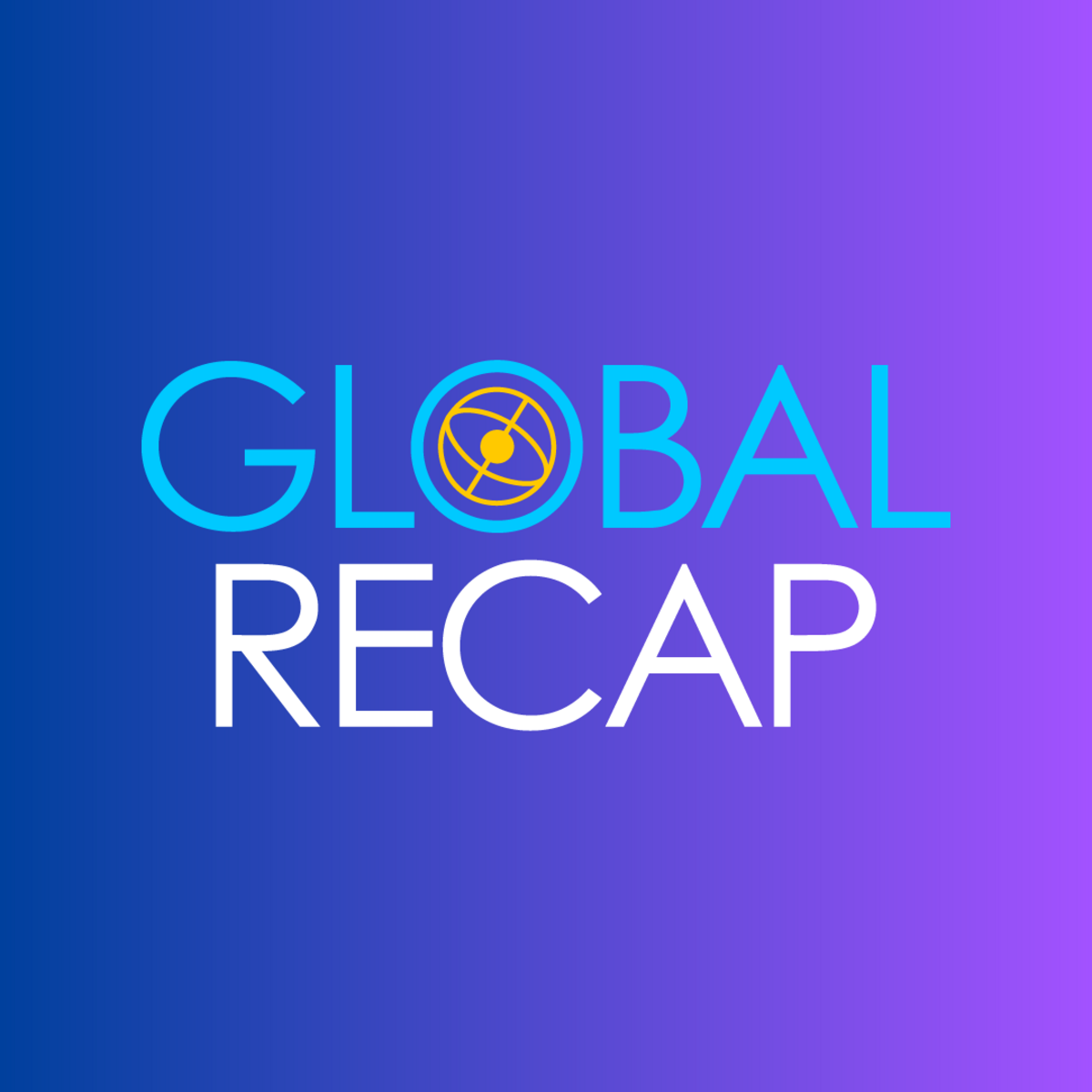
Hi Global Recap readers,
I clicked on this Chinese spy story expecting the “usual” stuff, but no.
Imagine electing a mayor and later discovering:
she may not have been born in your country (allegedly)
she was running a human-trafficking and money-laundering scam hub
she might actually be a spy
What's going on... 👇🏼
🇵🇭 PHILIPPINES
Chinese Spy
Mayor Jailed

Alice Guo (Guo Hua Ping?)
Philippine authorities have sentenced former town mayor Alice Guo to life in prison on human trafficking charges tied to a huge online scam hub in her own backyard.
And it turns out, she probably wasn’t even born in the country…
Politics: Guo was elected Bamban mayor in 2022 and initially sold locally as a caring figure, yet she claimed she knew nothing about the eight hectare complex of 36 buildings that sat near her office and on land she had previously owned.
Verdict: A court found 35-year-old ex-mayor Alice Guo and seven co-accused guilty in connection with trafficking people forced to work in a scam compound in Bamban, and handed all eight life terms plus a fine of 2 million pesos (about $33,800 / £25,900).
Scams: The compound was officially an online casino operation, part of the Philippine Offshore Gaming Operator (POGO) sector that serves gamblers in mainland China, but investigators say it hid one of the country’s biggest scam centers, where around 800 Filipino and foreign workers were rescued after a raid and described "pig butchering" style frauds that targeted victims online.
Identity: And here’s the crazy part. Lawmakers later said her fingerprints matched those of a Chinese national named Guo Hua Ping, contradicting her story that she was born in the Philippines and raising suspicion that someone with opaque roots had managed to capture a strategic local post.
Aftermath: Guo was removed from office, vanished in July 2024, then arrested in Indonesia in September and then handed over to Philippine authorities, where her passport has been canceled and at least five other criminal cases, including money laundering, are still moving through the system while Beijing keeps publicly quiet.
📌 Context: The case is unfolding as Manila and Beijing clash over reefs and shoals in the South China Sea, so a local official accused of being a "Chinese spy mayor" lands right in the middle of domestic anxieties about foreign influence, organized crime, and weak institutions.
Also, don’t forget the LinkedIn CCP spies scandal in the U.K. we covered a few days ago.

🇦🇺 AUSTRALIA
Meta’s Teen
Cutoff Clock

Australia is about to flip the switch on a world-first social media ban for under-16s, and Meta has started pinging teenagers to grab their photos, chats, and follower lists before they are locked out. Meta will begin shutting underage accounts from December 4, ahead of the new law kicking in on December 10.
Law: Canberra now requires big platforms like Facebook, Instagram, Threads, TikTok, Snapchat, X, YouTube, Reddit, and Kick to take "reasonable steps" to keep anyone under 16 from opening or keeping an account from December 10 onward, with fines that can hit about $50 million (Australian Dollars) for those that do not comply.
Scale: The company thinks roughly 350,000 Australians aged 13 to 15 are on Instagram and another 150,000 are on Facebook, so hundreds of thousands of timelines, DMs, and group chats are suddenly on the clock.
Verification: But here's another controversy. Older users who get flagged by mistake can appeal through Yoti Age Verification, either by uploading government ID or filming a short "video selfie." Critics are calling this a dystopian precursor to digital ID.
Arguments: The government insists platforms already know enough about most users to spot kids and rejects the idea of forcing every Australian to show ID.
📌 Context: Australia is trying to put a legal fence around teens’ social media use, arguing that hours of scrolling are wrecking mental health, while critics worry about overreach, patchy age detection, and what happens when half a million kids are abruptly pushed off the platforms that now double as their social lives.
📊 Poll
As we’ve discussed before, the central controversy around issues like this is how much responsibility parents should delegate to the government.
Supporters say kids need guardrails, just as they’re protected from harmful substances..
Critics argue that social media isn’t cigarettes or alcohol, and that setting boundaries is a parent’s job, not the government’s.
What do you think?
Do you believe this is government overreach?

🇹🇼 TAIWAN
Sushi Solidarity
With Japan

Taiwanese President Lai Ching-te
Taiwan’s President Lai Ching-te posted a sushi lunch to signal support for Japan amid rising tensions between China and Japan. The meal featured Japanese yellowtail (amberjack) from Kagoshima and scallops from Hokkaido.
Gesture: Lai shared photos on Facebook and Instagram on Nov. 20, holding chopsticks and a plate of sushi.
Why: I know I am repeating this every newsletter, but for all our new readers... Frictions spiked after Japan’s new PM Takaichi said Tokyo could intervene if China attacked Taiwan. Beijing then indicated it will halt Japanese seafood imports, according to officials in Tokyo.
Support: Taiwan’s Foreign Minister Lin Chia-lung also urged people to visit Japan and buy Japanese goods, blasting China’s “bullying behavior.”
Response: Spokesperson for the Ministry of Foreign Affairs of China, Mao Ning, said Taiwan is an inseparable part of China and dismissed Lai’s post as a show.
📌 Context: This is a pretty interesting dynamic, considering that Taiwan was under Japanese colonial rule from 1895–1945.
It’s also important to note that many long-resident Taiwanese (Hoklo and Hakka groups) are distinct from the "mainlander" population that arrived after 1945. That split is part of why Taiwan’s memory of that era is more mixed (and often more nuanced) than in Korea or China.
Against that backdrop, perhaps Taiwan’s current hostility toward China simply outweighs any lingering colonial-era baggage?

🇮🇷 IRAN
Iran Scraps New
Nuclear Checks

Iranian President Pezeshkian touring the national Atomic Energy Organization in Tehran on Nov. 2.
Iran just scrapped a September deal that was meant to let U.N. nuclear inspectors back into its bombed facilities, right after the U.N. watchdog demanded detailed answers on its uranium stockpile.
The result is a deeper standoff and almost no visibility into what happened to its near weapons grade uranium after the summer airstrikes.
Trigger: On 20 November, the IAEA board in Vienna passed a resolution, pushed by the United States, Britain, France and Germany, demanding precise and prompt information on Iran's enriched uranium and access to sites hit in the June war.
Reversal: Within hours, Iranian Foreign Minister Araghchi announced that Iran was cancelling the Cairo inspection deal, accusing those countries of ignoring its goodwill and sabotaging cooperation with the agency.
Blindspot: Before the strikes, inspectors tracked about 441kg (~972 pounds), of uranium enriched to 60%, close to weapons grade, enough for around 10 bombs if fully weaponized, yet the agency now says it has lost "continuity of knowledge" over that stockpile.
Backstory: The June escalation saw Israeli attacks on Fordow, Natanz and Isfahan on what Trump touted as "day 61" of his deadline, followed nine days later by U.S. bombing that he claims "obliterated" Iran’s program.
Stakes: Iran still insists its work is peaceful, but it is the only non nuclear weapons state producing 60% uranium while U.N. snapback sanctions, the collapse of the 2015 nuclear deal, and talk of another Israel Iran clash now orbit a stockpile no inspector can reach.
📌 Context: The 2015 Joint Comprehensive Plan of Action (JCPOA) once capped Iran's enrichment below 4% and put IAEA cameras on its main sites, but after the U.S. exit in 2018 during Trump's 1st term, years of violations and the U.N. snapback of sanctions in late 2025, each lost inspection is really a test of whether the global nonproliferation system still works.

🇺🇦 UKRAINE
Political Suicide

President Zelenskyy is preparing to talk with Donald Trump about a US Russian peace plan that would lock in Russian gains in Ukraine in exchange for security guarantees and reconstruction money. Kyiv’s leadership now has to decide whether to engage with a deal many of them quietly describe as "political suicide."
Proposal: A 28 point draft deal (largely hammered out by U.S. and Russian envoys behind closed doors with no formal role for European governments and only limited consultation with Kyiv) would force Ukraine to give up Crimea and the Donbas, freeze current front lines in Kherson and Zaporizhzhia, and cap its armed forces at roughly 600,000 troops.
Conditions: Ukraine would:
pledge never to join NATO,
accept that no NATO troops would be stationed on its territory,
rely on U.S. security guarantees,
receive air cover provided by European fighter jets based in Poland, rather than NATO aircraft on Ukrainian soil.
Authors: The blueprint reportedly comes from Kirill Dmitriev, a close ally of Vladimir Putin, and Trump’s special envoy Steve Witkoff, while Trump’s new representative, US army secretary Dan Driscoll, has flown into Kyiv with four star generals to pitch the plan and is expected to carry it on to Moscow.
Kyiv: Zelenskyy’s public line is that Ukraine will not "upend diplomacy," yet senior officials in his government have blasted the proposal as "absurd," a "provocation," and a de facto capitulation that would gut Ukraine’s sovereignty after nearly four years of resisting the full-scale invasion.
World: European leaders in Brussels say they were not warned and stress that any settlement must include Ukrainian and European buy in, pointing out that the draft asks nothing substantial of Moscow, while the push comes as Russia escalates strikes on Ukraine’s power grid and Zelenskyy faces a domestic bribery scandal that diplomats say the Kremlin is eager to exploit.

